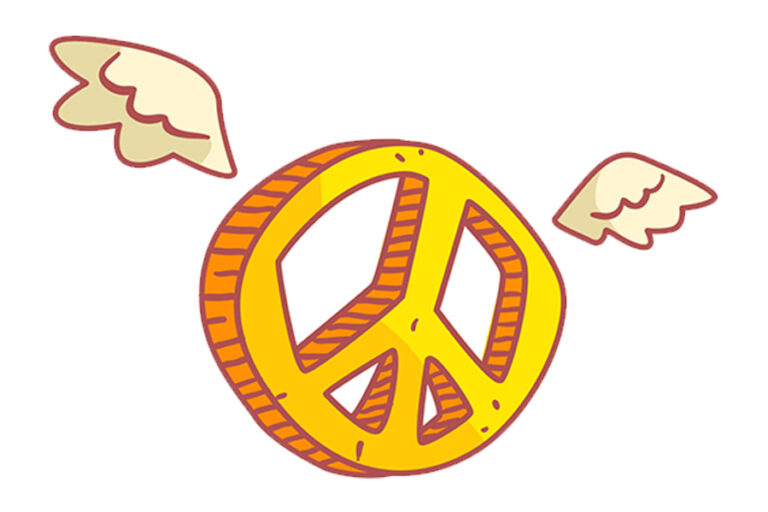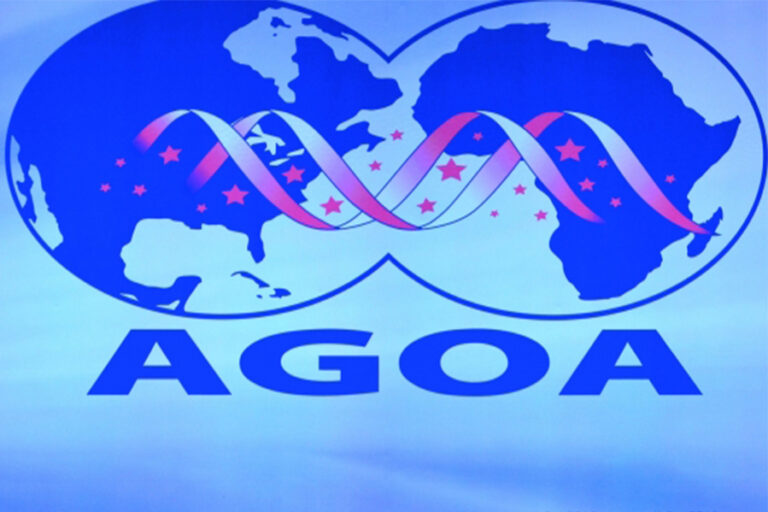Safaricom Telecommunications Ethiopia Plc, signed an agreement with the global telecom giant Nokia for its infrastructure development for its operation in Ethiopia. It is also finalizing the negotiation with the Chinese global telecom giants Huawei.
Safaricom Ethiopia that was formed by the amalgamation of Safaricom, Sumitomo Corporation, CDC Group and Vodacom has secured operational license from the government early June 2021 officially to do business in Ethiopia as a second telecom company after the state owned Ethio Telecom.
Additional to Nokia previously the company shortlisted the Chinese global telecom giants Huawei to set up its infrastructure. Safaricom has signed its agreement with Nokia last week.
The company is also talking with Huawei Technologies of the Chinese multinational technology corporation for the infrastructure development that it aspires to realize in a short period.
To get the license it has paid USD 850 million to the government and promised to invest up to USD 8.5 billion in the coming decade.
The company has already disclosed that it will launch the operation in the first half of mid-2022.
The company is now starting engagements with Ethio Telecom, which is expected to provide rental service of its infrastructure for the new telecom operator.
Currently safaricom has about 120 staffs in which only 10 of them are Ethiopians, working with both virtual and personal meeting from Africa, Europe and Asia. Due to the fear of the current instability in the country the company has sent its non-Ethiopian staffs to their home country.
“We will continue to work virtually and this will not affect our plan” said one of the staff.
Awarded on May 2021, the company has set up its temporary office at Hyatt Regency hotel.
Furthermore on Friday the company has released expression of interest to recruit partners who can distribute its products and services including airtime, mobile telephones and sim-cards. Also to start putting its rooftop and indoor sites over the country the company has called eligible bidders to lease sites in 8 cities around the country.
Safaricom signs deal with Nokia
Berhan Bank appoints acting President
Berhan Bank has appointed Bethlehem Getachew as its acting president after the resignation of its president Abraham Alaro this week.
On Wednesday November 5, 2021 Abraham Alaro who has been serving the bank as president starting from 2014 has submitted his resignation letter to the Board of Directors informing them his resignation on the basis of personal matter.
In a statement sent to capital, Berhan Bank has said that the board of the directors are discussing on the resignation letter but to fill the gap and continue the daily activities of the bank the board has decided to appoint Bethlehem as acting president. According to the statement Bethlehem will take the presidency until a replacement is appointed.
Starting from March 2013 up to September 2014 Abraham has been working at the bank as vice president and since September 2014 he has been serving as president.
Bethlehem is currently serving the bank as Vice President on Customer Service and Quality Assurance
Berhan Bank was registered and licensed by the National Bank of Ethiopia on 27 June 2009 with a paid up capital of Birr 95.7 Million divided in to shares of Birr 1,000 and an authorized capital of Birr 300 Million. Berhan Bank S.C started operation on October 30, 2009. Currently the initial capital of Berhan bank stands at 3 billion birr.
In its latest annual report of the 2019/20 year, on January 2021 Berhan Bank has expanded its revenue by 30 percent in the financial year concluded in June, while the profit has climbed by 22 percent. The bank managed to register 2.8 billion birr revenue up from 2.2 billion birr in the 2018/19 financial year.
The interest expenses have also increased by 35 percent and reached at 818 billion birr from 605 million birr which Berhan has achieved massive progresses like the income and profit in other measurements in the year.
Peace be the ultimate goal
The majority of ongoing armed conflicts today started before the turn of the century. Such long-running conflicts cause enormous human suffering and are highly destructive. They lead to internal displacement and migration, destroy a country’s key infrastructure, and divert resources away from productive activities and investment in public health and education. The instability caused by these conflicts has spillover effects on neighboring countries and can often destabilize an entire region. A key characteristic of such protracted conflicts is their apparent resistance to any negotiated settlement. Leaders of parties to such conflicts refuse to enter into negotiations, stall progress in talks, escalate violence at critical moments or make hardline statements that render productive negotiations all but impossible. This poses a key puzzle: why do conflict parties fail to negotiate a conflict settlement, even when they know that war is costly?
Bargaining theorists primarily attribute bargaining failures to information problems: because parties have an interest in exaggerating their own capabilities and resolve, they do not trust each other’s information, which may lead to a situation where one or both parties overestimate their relative strength. In these situations, they may believe that they can achieve more through continued fighting than through settlement. After long periods of fighting, their assessments of the expected military outcome should converge, revealing a range of mutually preferable agreements. But even when both sides would prefer a negotiated agreement, they may fail to reach settlement, if they cannot credibly commit to implementing a peace agreement. Other common explanations for protracted conflicts include the indivisibility of stakes and the presence of war entrepreneurs. Scholars from the sociopsychological peace and conflict studies focus on a very different set of factors, such as social identity and hatred, to explain protracted conflicts. These explanations often present a competing logic, leading to contradicting expectations about conditions that foster conflict settlement.
Most bargaining models represent conflict parties as abstract, rational entities. These entities care only about their own welfare. If they care about gains of the other side, they essentially do so because relative gains by the opponent may affect one’s own welfare in the future. Such self-centered preferences imply that wars are just like ordinary bargaining situations and that-strategic considerations about future interactions aside-conflict parties evaluate an agreement irrespective of whom they are negotiating with.
Scholars studying the relationships between social identity, group dynamics, and hatred would reject such a suggestion as nonsensical. A central question to these scholars is how social identity shapes conflict, and vice versa. Even without conflict, humans tend to pursue a sense of belonging through the creation of social groups: in-group, to which we belong, and out-groups, from which we distinguish ourselves. Such categorizations provide us with a way to identify ourselves in social terms and to define our place in society. Because most of us strive to create or maintain a positive social identity, we tend to distinguish or differentiate our in-group from the out-group in favourable terms. Intergroup competition expands the perceived distance between the in- and out-group: it increases the social identification of individuals with their own group and leads them to view and treat members of the other group as members of that group, rather than as individuals. War is an extreme form of intergroup competition, where individuals tend to have strong social identification with their in-group and strong hatred for the out-group. While conflict party members may already negatively identify with the other side before the onset of war, hatred will likely intensify when fighting breaks out. For individuals tend to see violent acts by their own groups as necessitated by the opponent’s behavior, while viewing violent acts by the opponent as intentional and malicious (and thus necessitating counter-attacks). Leaders who engage in war have an incentive for further polarization, as hatred for an out-group mobilizes political support, creates cohesion and unity, and helps legitimize a violent course of action. Hatred may thus exist before the onset of war, but it will likely intensify and become entrenched as war breaks out and fighting persists.
Naturally, leaders do not calculate support through some elaborate calculation; instead, they use heuristics to gauge whether a policy decision to engage in, stay in, or conclude negotiations enjoys a minimum of required support from key constituents. Leaders may actively communicate progress in talks or leak interim agreements to gauge the reaction of the public, the media, or specific constituent groups. Opinion polls, consultations with key opinion makers, and editorial comments in mainstream media are other examples of ways to help leaders determine whether negotiations or an eventual agreement have sufficient constituent support.
With the exception of those who profit from the instability that war brings, everyone wants peace-but not necessarily at all costs. Integrating the above insights into bargaining theory allows discussing preferred policy options from the perspective of individual members of conflict parties, showing how hatred, ongoing hostilities, and war narratives negate space for a negotiated settlement.
Suspension of Ethiopia from AGOA misguided
All parties to the conflict in Tigray have committed violations of international human rights
The Ethiopian government stated that the US government’s decision to suspend Ethiopia from AGOA is misguided and fails to take into account the commitment of the government of the US values the wellbeing of ordinary citizens.
In a statement issued by the Ministry of Foreign Affairs, “removing the preferential agreement will affect the livelihoods of more than 200,000 low income families, mostly; women who have got nothing to do with the conflict, it will also considerably impair the lives of one million people who are engaged in the supply chain ecosystem.”
It said that it expected from international community a balanced view on the situation in Ethiopia.
The statement issued further said that what Ethiopians expect from the international community and the US in particular at this time is an unbiased assessment of the critical situation and supply of the much needed humanitarian support to affected people.
“Unjustified intimidation to jeopardize the economic livelihoods of innocent citizens, which we believe is propelled by the enemies of Ethiopia behind the scene, will not give a peaceful resolution to the conflict,” it added.
And it asked the US government to reverse its decision that may only embolden the terrorist group while endangering the aspirations of Ethiopians to extricate themselves out of poverty.
“The government of Ethiopia is deeply dismayed by the failure of the United States to properly acknowledge efforts made to address concerns on both the humanitarian aid and human rights issues in connection with the conflict,” it said by reminding that reducing security checkpoints from 7 to 2, among others has shown the government commitment to address the concerns of the international community over some bureaucratic hurdles.
It recalled that the government support for the joint investigation by the UN Human Rights Office (UNHRO) and the Ethiopian Human Rights Commission (EHRC) into alleged violations of human rights committed in Tigray.
The report issued by the joint human right bodies mid this week disproved most of the allegations that were fingered on the Ethiopian government. It generally highlighted that there were not that much incidents that was claimed by the international community and media the statement from MoFA said.
The joint investigation by EHRC and the UNHRO has found that there are reasonable grounds to believe that all parties to the conflict in Tigray have, to varying degrees, committed violations of international human rights, humanitarian and refugee law, some of which may amount to war crimes and crimes against humanity.
In a report published, which examines the devastating impact the conflict has had on civilians, the Joint Investigation Team (JIT) details a series of violations and abuses, including unlawful killings and extra-judicial executions, torture, sexual and gender-based violence, violations against refugees, and forced displacement of civilians.
The report covers the period from 3 November 2020, when the armed conflict began between the Ethiopian National Defence Force (ENDF), the Eritrean Defence Force (EDF), the Amhara Special Forces (ASF), the Amhara Fano and other militias on one side, and the Tigrayan Special Forces (TSF), Tigrayan militia and other allied groups on the other, until 28 June 2021 when the Ethiopian Government declared a unilateral ceasefire.
The JIT visited several locations, including Mekelle, Eastern Tigray (Wukro), Southeastern Tigray (Samre and nearby areas), Southern Tigray ( Alamata, Bora and Maichew), Western Tigray (Dansha, Humera and Mai Kadra), and Bahir Dar and Gondar in the Amhara region, as well as Addis Ababa. The JIT conducted 269 confidential interviews with victims and witnesses of alleged violations and abuses, and other sources; and held over 60 meetings with federal and regional officials, representatives of international organisations, NGOs, community-based committees, medical personnel, and other sources.
“As the conflict expands with more reports of violations and abuses, this report presents an opportunity for all parties to acknowledge responsibility and commit to concrete measures on accountability, redress for victims and the search for a sustainable solution to end the suffering of millions,” said Daniel Bekele, Chief Commissioner of the EHRC. “EHRC remains engaged in monitoring the human rights situation since end of June and will be sharing its findings in due course,” Daniel said.
“The Tigray conflict has been marked by extreme brutality. The gravity and seriousness of the violations and abuses we have documented underscore the need to hold perpetrators accountable on all sides,” said Michelle Bachelet, UN High Commissioner for Human Rights.
“As the conflict has escalated, with civilians as ever caught in the middle, it is vital that all parties heed the repeated calls to end hostilities and seek a lasting ceasefire,” said Bachelet.
The JIT recommends that all parties to the conflict to end all violations and abuses and to take all necessary measures to protect civilians and civilian infrastructure. It calls on them to agree, without preconditions, to immediately end hostilities and end any measures that may exacerbate the already acute humanitarian crisis.






